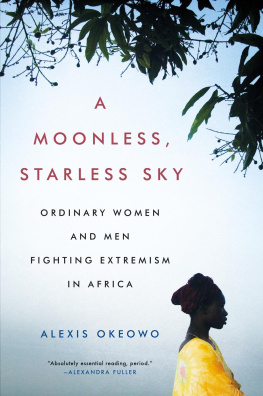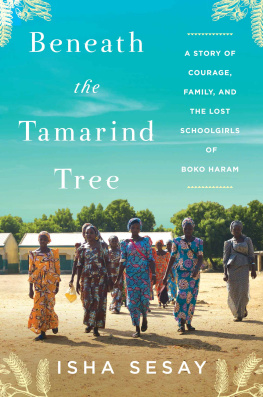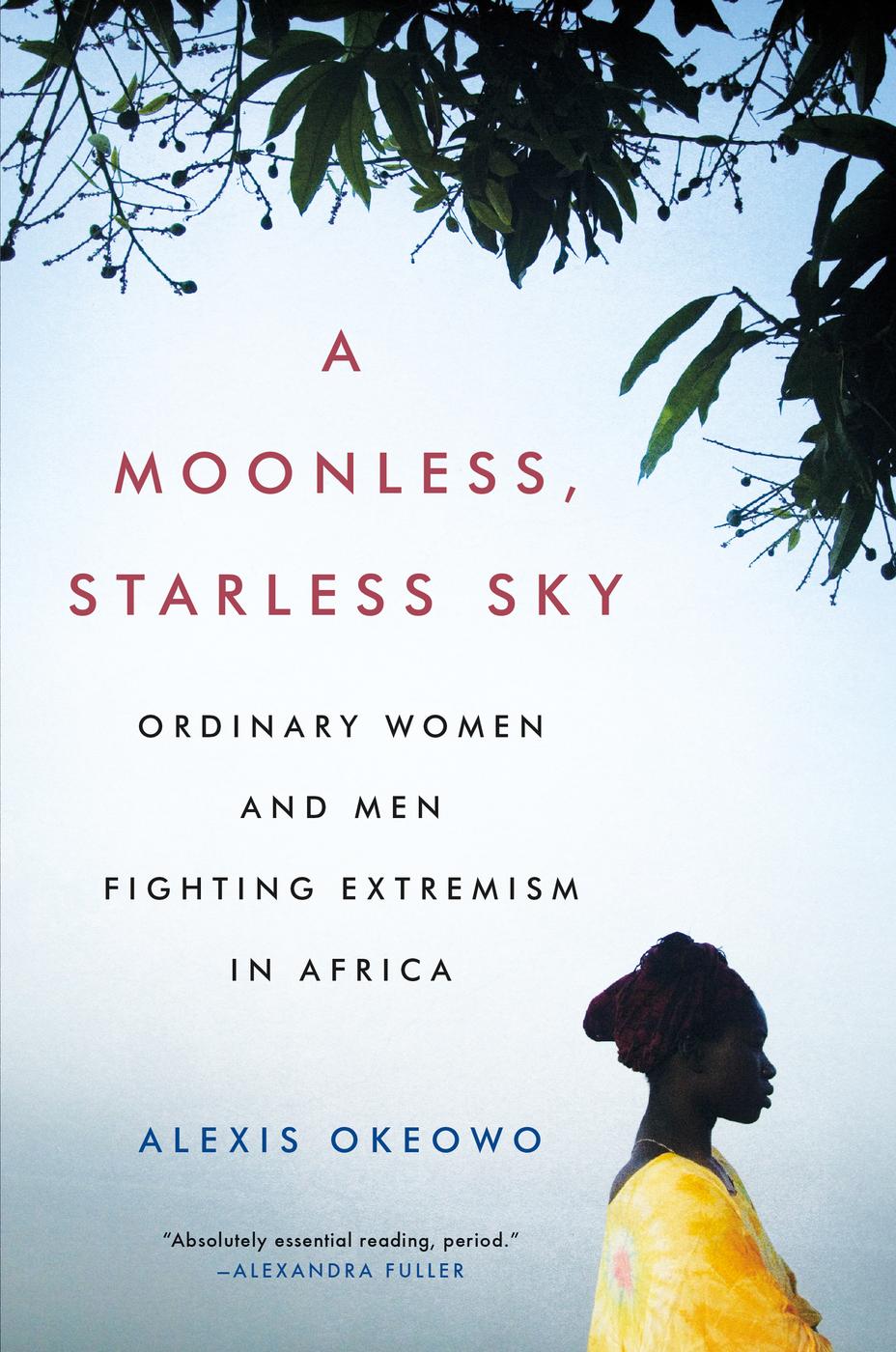For the safety of certain individuals I interviewed, I have altered names or provided only first names.
I didnt plan on becoming obsessed with Africa. But ever since taking a ten-month internship at a newspaper in Uganda after college, I have returned to the fascinating, unpredictable, and maddening continent again and again to report stories. Before moving to Uganda at the age of twenty-two, I had traveled to Africa just once: In elementary school, my Nigerian parents took my brothers and me to their country of birth for Christmas, and we shyly and awkwardly united with dozens of relatives we had never met. My parents had both ended up as college students in Alabama, where I grew up. We had all the comforts of Nigerian food, art, and music in my childhood home, but I didnt have a great interest in Africa. I was drawn more to the prospects of adventure.
I traversed Uganda, flying in tiny planes to the remote, arid northeast and the border with Sudan, and bungee jumping over the Nile River, all the while trying to figure out my relationship to its inhabitants. Feeling neither wholly American nor African, I had come to see myself as an outsider in both places, an observer at the fringes. It was a perspective that helped me learn to report with clarity. Five years after my internship in Uganda, I moved from Brooklyn back to Africa, this time to have a home base in Nigeria. It was then that I realized things had changed. After several years in and out of Africa, becoming familiar with so many of its cultures and parts, I no longer felt like an outsider. The continent had become a second home.
But as a novice reporter in Uganda, I initially approached my subjectsback then, primarily survivors of the civil warwith a mix of alienating emotions. Sympathy, for the suffering they had endured, which usually turned into pity, and a blend of disbelief and bewilderment that they had come through to the other side, mostly intact, still able to laugh and feel joy and express compassion for strangers.
I was writing 800-word news stories that didnt delve deeply into my subjects lives, and they still felt foreign and incomprehensible. It took time to understand that what I was beginning to feel intimatelya kinship to Ugandans, a sense that we were far more alike than we were dissimilarhad to extend to how I undertook my reporting. If I wanted readers to understand that the people I interviewed were not that different from them, I needed to practice empathy when writing. That meant telling the stories of their lives, their likes and dislikes, their hobbies, the people they cared for. It meant conveying that I understood that I could have been a woman who had been disfigured by a rebel group had not it been for the fortune of my birthplace.
As my reporting deepened, the lives that interested me the most were the everyday, complicated Africans who were dealing with religious and cultural fundamentalism, state failure, and conflict, people who were grappling with their countries and trying to push them forward. What does resistance mean in the fight against extremism in Africa? There is the obvious profession of an activist: someone who has devoted her life to a cause. That cause usually swallows activists whole, dominates their lives. Activists can stage protests and sit-ins; they can also, in radical cases, take up arms. Liberty, that precious, delicate right, is fleeting in so much of the world. Sometimes it is there for you to take and enjoy; other times it suddenly and violently disappears, as if it never existed in the first place. But there are always people who go looking for that freedom, even at personal risk. They are not only activists and vigilantes, but also ordinary people. I became interested in subtler forms of resistance, ways of fighting that are not as easy to notice. Preserving your way of life amid extreme situations is also a vital struggle. That can mean continuing to live in your house, going to work, seeing your friends, dancing, playing sports and music, being as free as you know you deserve to be. It can also mean loving who you want, no matter who that person is, and keeping your family together.
What are the ethics of resisting? When extreme circumstances are forced upon a person, what is she allowed to do to survive? Can she commit apostasy as a religious person, or kill a relative? The answers are complex, possibly unknowable. The idea of survival becomes hazy: It can mean more than just staying alive; it can mean leading the life she feels entitled to have. And in order to do that, the morals she was taught, that she has long lived by, could shift and mutate into something she no longer recognizes. They could change because she believed she was fighting for good, or at least for her right to have a good, sane life, and, along the way, she had to resort to actions she would have never committed in the past. They could change because, when extreme circumstances overtook her life, subverted what she knew and held dear, resorting to radical measures was the only way to resist, and to live.
The four stories in A Moonless, Starless Sky all deal, in some way, with extremism within Christianity and Islam. But there are many types of extremism, in the spheres of gender and sexuality, nationalism, and race. These stories are only a few windows into what is happening in Africa. And it is revealing that the women and men fighting back are Christian and Muslim, too, and often fighting within their religions for the principles in which they believe.
I dont have much experience with resisting extremism in my own life. But I do know what it is like to live in a culture of extremes, as a black girl who grew up in the Deep South in the 1990s. Within days of moving to Alabama, a white woman shouted Nigger! at my father, my brother, and I as we drove past her car at a gas station. My father immediately reversed the car and pulled into the station to ask the woman what, exactly, she had said. She had nothing to say after that. A pack of white boys at my high school in Montgomery, home of the Civil Rights Movement, wore T-shirts, sweaters, whatever they could find, emblazoned with the Confederate flag. I went to an academically rigorous school and had white and black friends, but my relationships with my white classmates always had a terminal boundary, past which lay weekend sleepovers and house parties that I couldnt join because it just wasnt done. And so, I became used to the extreme polarity of race where I lived, darting between each end with frequency, but never feeling free to jump off one with abandon.









